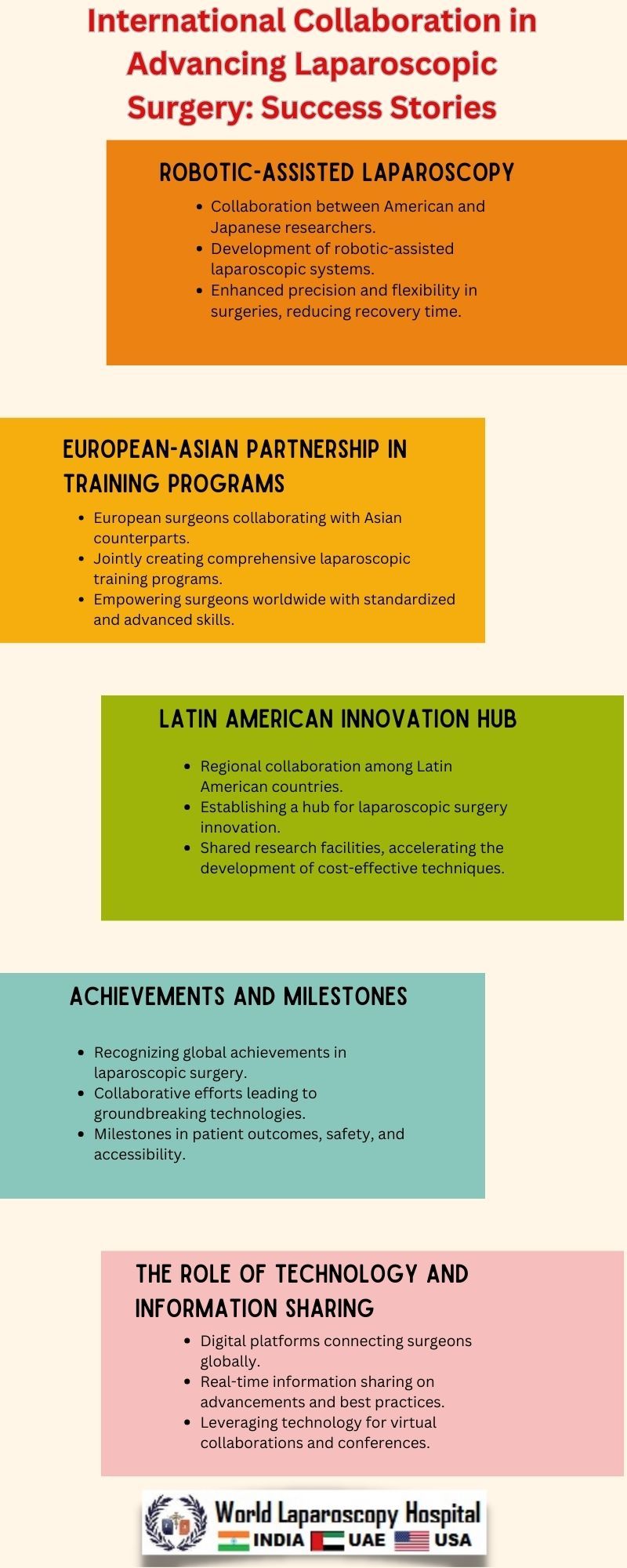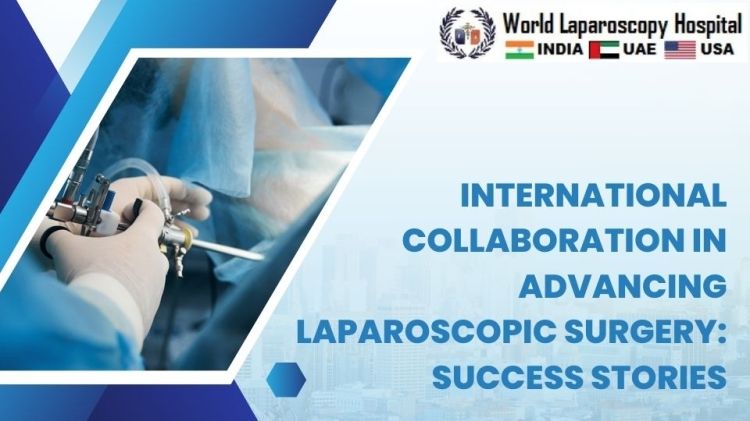International Collaboration in Advancing Laparoscopic Surgery: Success Stories
Introduction
In the ever-evolving landscape of medical science, one of the shining examples of global collaboration is witnessed in the field of laparoscopic surgery. Laparoscopy, a minimally invasive surgical technique, has not only transformed the landscape of surgical procedures but has also showcased the power of international cooperation in advancing medical practices. This article delves into the success stories that highlight the remarkable achievements made possible through collaborative efforts in laparoscopic surgery.

The Evolution of Laparoscopic Surgery
Laparoscopic surgery, also known as minimally invasive surgery, has its roots in the mid-20th century. However, it wasn't until the late 1980s and early 1990s that technological advancements and refined techniques catapulted laparoscopy into mainstream surgical practice. Traditional open surgeries, with their inherent risks and prolonged recovery times, were gradually being replaced by laparoscopic procedures that offered smaller incisions, reduced pain, and quicker recuperation.
The International Tapestry of Expertise
One of the cornerstones of the success of laparoscopic surgery lies in the international exchange of expertise. Surgeons from different corners of the globe converge to share their knowledge, innovations, and experiences. This collaborative approach not only fosters a deeper understanding of the intricacies of laparoscopy but also accelerates the dissemination of best practices.
Leading Centers of Excellence
Internationally renowned medical institutions and surgical centers have become hubs for collaborative research and training programs in laparoscopic surgery. Institutions such as the Cleveland Clinic in the United States, the Karolinska Institute in Sweden, and the Asan Medical Center in South Korea have played pivotal roles in pioneering new techniques and refining existing ones. The exchange of medical professionals, joint research initiatives, and cross-border training programs have become the norm in these centers of excellence.
Advancements in Technology
The rapid evolution of technology has been a driving force behind the progress in laparoscopic surgery. International collaboration has facilitated the sharing of cutting-edge technologies, robotic-assisted systems, and imaging advancements. Surgeons across borders work hand in hand with engineers and technology developers to create instruments that enhance precision, improve visualization, and reduce the invasiveness of procedures.
The Role of International Conferences and Workshops
International conferences and workshops serve as platforms where surgeons, researchers, and industry professionals converge to share their latest findings and innovations. Events like the World Congress of Endourology and the International Society for Minimally Invasive Surgery Congress provide opportunities for collaboration and networking. These gatherings not only showcase the latest advancements but also foster a sense of camaraderie among professionals dedicated to pushing the boundaries of laparoscopic surgery.
Success Stories: A Glimpse into Collaborative Triumphs
Global Training Programs:
One notable success story stems from collaborative global training programs. Surgeons from developed countries collaborate with their counterparts in developing nations to provide hands-on training in laparoscopic techniques. This not only helps bridge the gap in surgical expertise but also ensures that the benefits of advanced surgical procedures reach underserved populations.
Telemedicine and Telementoring:
The advent of telemedicine has further amplified the scope of international collaboration. Surgeons can now remotely mentor their peers in different parts of the world, offering guidance during complex procedures. This not only enhances the skills of the local surgical teams but also establishes a network of support for challenging cases.
Research Consortia:
Research consortia, where institutions from different countries collaborate on specific research projects, have yielded groundbreaking insights. These collaborative efforts have led to the development of new surgical techniques, better understanding of patient outcomes, and improved postoperative care protocols.
Cross-Cultural Innovation:
Laparoscopic surgery benefits immensely from cross-cultural innovation. Practices that have proven successful in one cultural context may be adapted and refined in another, leading to a continuous cycle of improvement. This blending of diverse perspectives results in a more holistic approach to patient care.
Challenges and Opportunities
While international collaboration has undeniably propelled laparoscopic surgery to new heights, challenges persist. Language barriers, variations in healthcare infrastructure, and regulatory disparities can impede the seamless exchange of knowledge. However, these challenges also present opportunities for further collaboration, as overcoming them requires the development of standardized protocols, multilingual resources, and shared regulatory frameworks.
The Future of Laparoscopic Surgery
Looking ahead, the future of laparoscopic surgery appears promising, thanks to ongoing international collaboration. The integration of artificial intelligence, virtual reality, and machine learning into surgical practices holds the potential to further enhance precision and outcomes. The continued exchange of knowledge and skills will play a pivotal role in navigating the uncharted territories of surgical innovation.
Conclusion
International collaboration in advancing laparoscopic surgery stands as a testament to the power of unity in the face of complex medical challenges. Through the collective efforts of surgeons, researchers, and technology innovators from around the world, laparoscopic surgery has evolved from a niche practice to a globally embraced standard. As we celebrate the success stories woven through collaboration, it becomes clear that the harmonious symphony of minds transcending borders is not only advancing laparoscopic surgery but also shaping the future of global healthcare.
